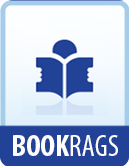At this time, too, I read all sorts of boys’ books. The story of Samuel Lawill impressed me most vividly; I, too, longed for such a ring, which by its warning pressure on my finger could hinder my hand from effecting unworthy purposes, and I was very angry with the youthful owner of the ring in the story, who threw it away in irritation because it pressed him right hard at a moment when he wished to commit a passionate deed.[16]
My confirmation, and the preparation for it, all conducted by my uncle, was over. I had received from it the most impressive and the most far-reaching influence in my whole life, and all my life-threads found in it their point of union and repose. I had now to be prepared for some business calling, and the question was raised, for which? That I should not study at the university had already been decided long before by the express determination of my step-mother. For since two of my brothers[17] had devoted themselves to study, she feared that the further additional expense would be too heavy a burden upon my father’s means. It may be that this intention had already influenced and limited my whole course of instruction; and probably only the little narrow circle of future business aims had been considered; the eye had not looked upon the boy as a future man. Possibly from this cause I was kept so little to Latin; it was enough if I learnt, as our mode of expression ran, to “state a Casus” (that is, to decline a noun). From my own experience it was thus shown to me how eminently injurious it is in education and in instruction to consider only a certain circle of future activities or a certain rank in life. The wearisome old-fashioned education ad hoc (that is, for some one special purpose) has always left many a noble power of man’s nature unawakened.
A career in our country frequently chosen by the worthiest and most anxious parents for their sons is that of a post in the Treasury and Exchequer. Aspirants to such a post have two means of entering and two starting-points in this career; either they become a clerk to one of the minor officials in the Treasury or Exchequer, or the personal servant of one of the highest officials. As my knowledge of writing and figures seemed to my father satisfactory and sufficient




